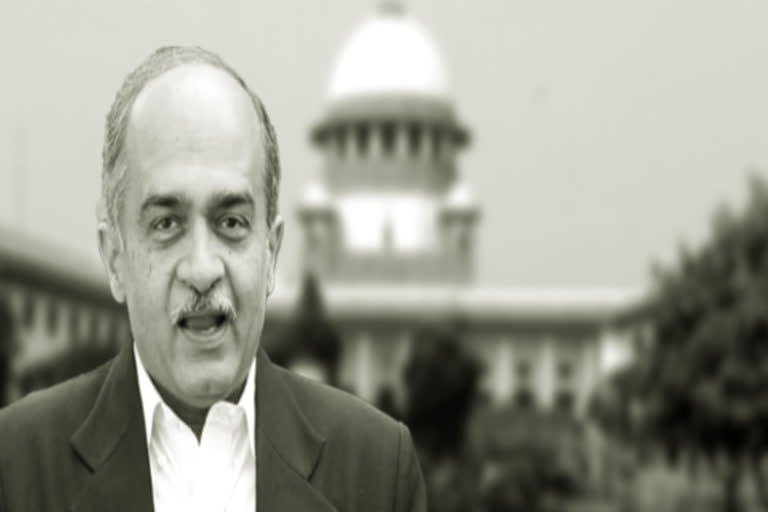New Delhi:The expression of opinion, however outspoken, disagreeable or unpalatable to some, cannot constitute contempt of court, activist lawyer Prashant Bhushan said on Monday in his reply to a show-cause notice issued by the Supreme Court.
The top court on July 22 issued notice to Bhushan for hearing on August 5 the criminal contempt proceedings initiated against him for his two alleged derogatory tweets against the judiciary, observing his statements prima facie brought the administration of justice in disrepute.
In a 142-page reply affidavit filed through lawyer Kamini Jaiswal, the activist lawyer has referred to several apex court judgements, speeches of former and serving judges on contempt of court and the stifling of dissent in a democracy and his views on judicial actions in some cases.
Bhushan also stood by his two tweets.
The respondent (Bhushan) states that expression of his opinion however outspoken, disagreeable or however unpalatable to some, cannot constitute contempt of court. This proposition has been laid down by several judgments of the Supreme Court and in foreign jurisdictions such as Britain, USA and Canada, he submitted.
He also referred to the freedom of speech and expression under Article 19 (1)(a) of the Constitution and said this right was the ultimate guardian of all the values that the Constitution holds sacred.
Read:|SC initiates contempt proceedings against Advocate Prashant Bhushan for his tweets
The relationship between Article l9 (1A) and Article 129 (this gives the power of contempt to SC) is governed by Article 19(2). Article l9 (2) (reasonable restrictions) recognises the fetters that can be placed on freedom of speech & expression under the court's power to punish for contempt under Article 129.
'Reasonable restriction' being the operative word under Article l9(2), any exercise of contempt powers by the Supreme Court must necessarily not be of a nature that goes beyond 'reasonable restrictions', Bhushan said in the affidavit.
To prevent a citizen from forming, holding, and expressing a bonafide opinion' in the public interest on any institution that is a creature of the Constitution is not a reasonable restriction and violates the basic principles on which our democracy is founded, he said.
